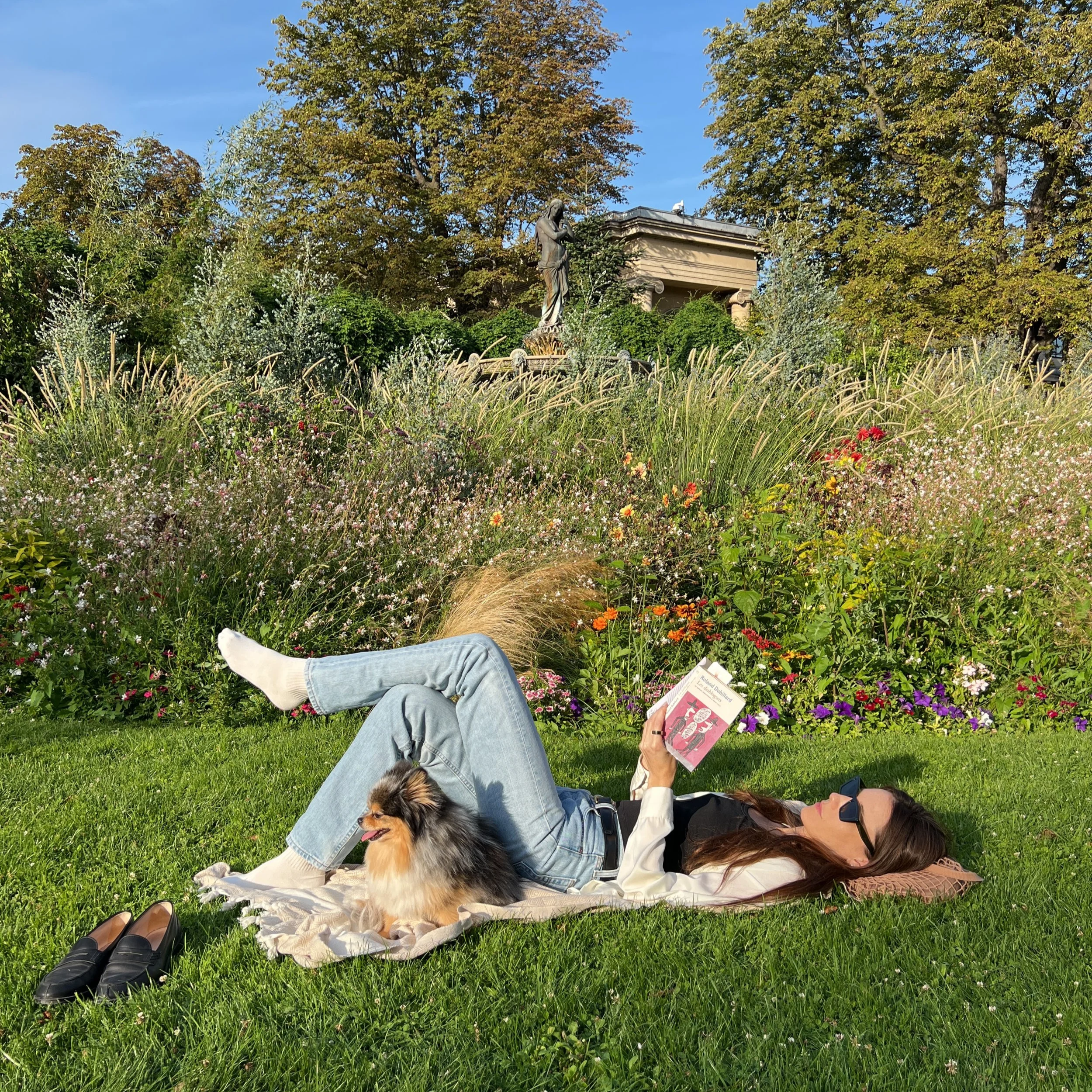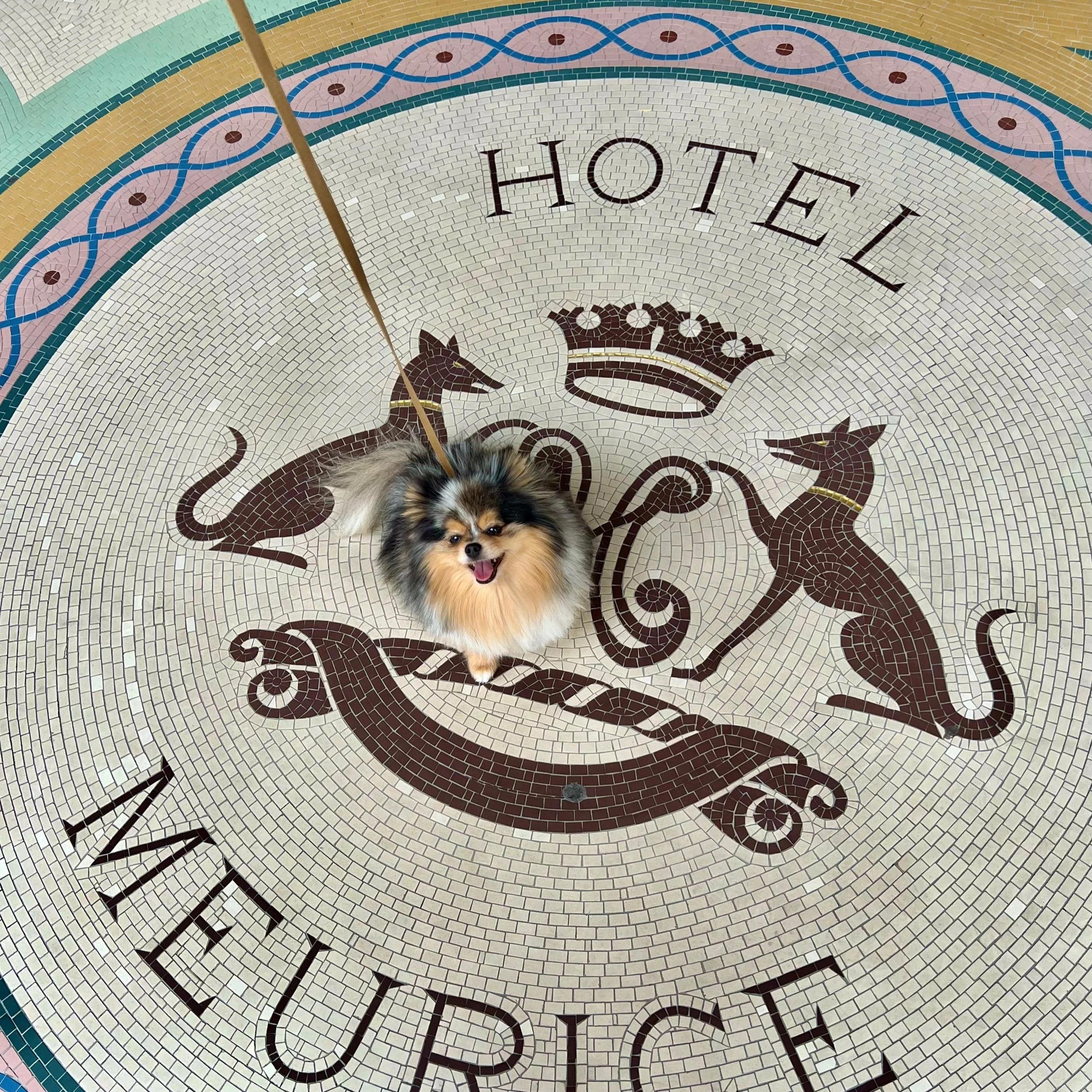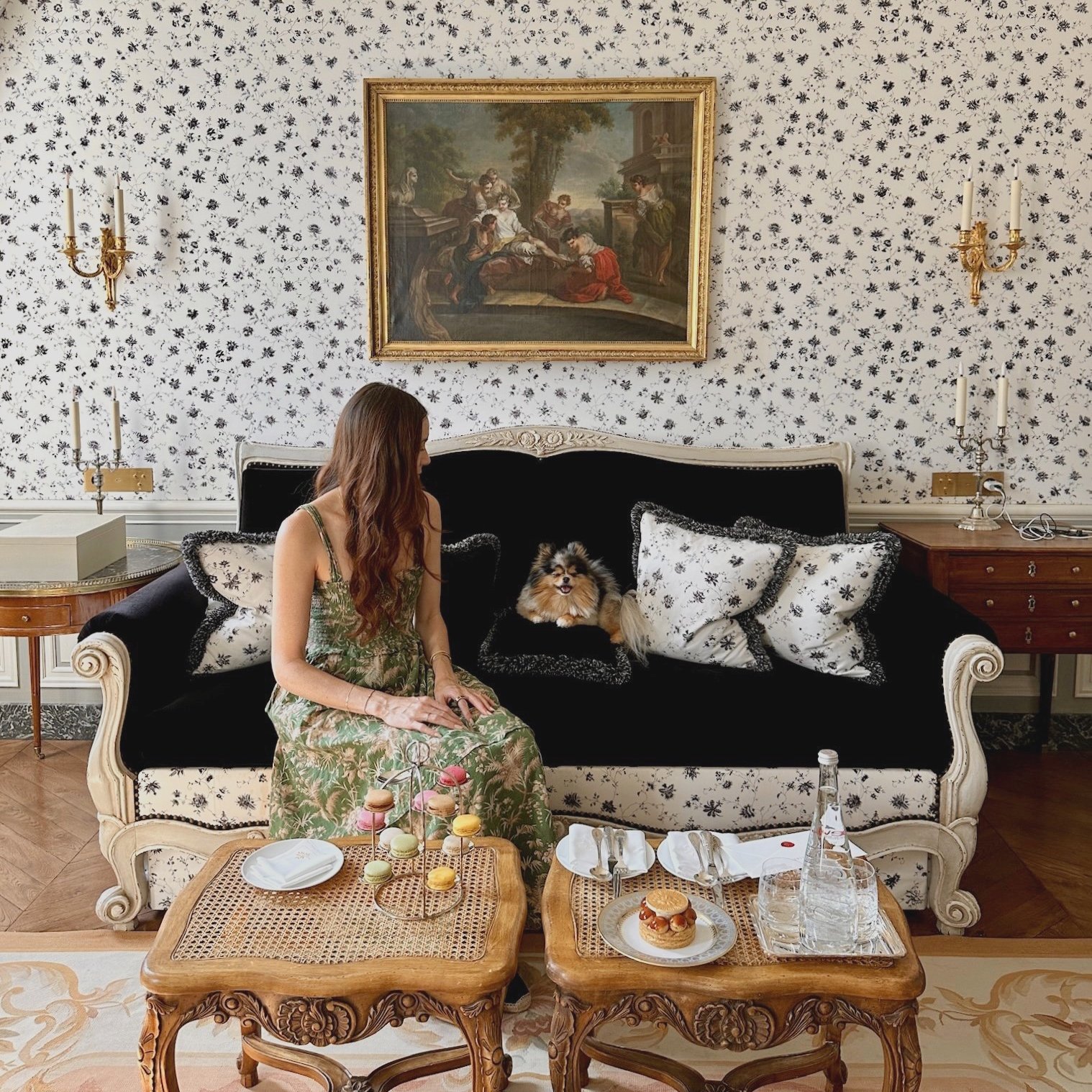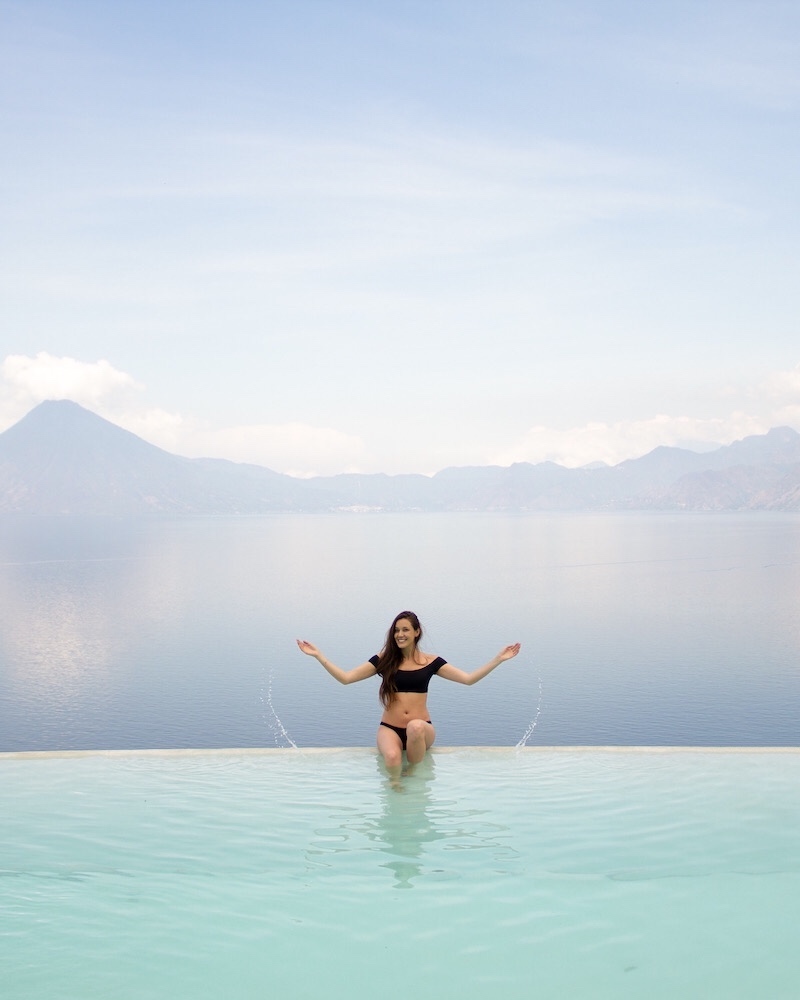My Favorite Methods and Techniques for Learning French Quickly
/My first-ever visit to Paris was in November of 2021– and at the time I only knew about three words in French. Within just a few years, I’ve reached a degree of fluency in the language thanks to the variety of learning methods and techniques I’ve discovered and continue to practice. I’ve managed to pass the B2 DELF with relative ease and have written at length about my experience testing various online language-learning platforms. In this article, I describe the methods and techniques I found to be the most effective for learning French.
A few facts about me and my personality, some of which definitely contributed to me being able to learn French quickly:
My first language is English
I had many years of formal education in the Spanish language before attempting to learn French
I live in Paris, but as soon as I moved here it was clear that few daily interactions were not enough to learn the language quickly– I had to put in a fair amount of effort to discover the variety of methods that worked well for me
I love learning new things, being productive, and feeling accomplished. It’s also important that I’m deeply interested in whatever it is I’m learning, so the methods have to be fun and effective
I spend a lot of time alone– my free time is my own, and I’m able to dedicate a considerable amount of time for my personal interests, which include learning French
If you are hoping to learn French quickly, consider some of my personal favorite methods and techniques outlined below.
The Most Effective Methods that Took My French to the Next Level
1. Consuming content that I was already familiar with, but in French
Whenever someone mentions the concept of “learning a language like a child”, this is the method that first comes to mind for me. Children learn language by observing and absorbing, and by developing context and understanding around the social situations they are simultaneously witnessing and navigating. To put myself in “situations” that modeled a similar environment, I would rewatch movies that I had already seen in English, but in French and without subtitles. And because I personally don’t like watching live-action movies that are dubbed, I opted to watch original animated Disney films which were familiar and easy to follow, but that I hadn’t seen in many years. Rewatching movies in French was especially helpful for improving my comprehension because I was forced to sharpen my listening skills and make sense of what I was hearing and watching, without translation.
Additionally, I would reread books that I had already read in English, but in French. Instead of using translation to understand the content, I would rely on my previous knowledge of the storylines and subject matter to help develop my understanding of the same content but in French. Rereading my favorite books in French was also a natural way to learn the vocabulary of subjects that I personally love to talk about and am interested in. I gravitate toward books on personal growth and development, which in hindsight has been especially helpful because in French, these types of books are oftentimes written in verb tenses other than the passé simple.
Click here for a list of some of my favorite books that I’ve read in French
2. Practicing things I was already good at, but in French
Providing myself with opportunities to try to communicate with various people, personalities, and situations has proven to be monumental in improving my French. One of the methods that I thoroughly enjoy and continue to do as often as possible is to practice the hobbies, skills, or physical activities that I’m already good at or familiar with, but in French. Living in Paris certainly makes it easier for me to find these activities, but there are also many online platforms to be able to experience something similar if you do not currently live in a French-speaking country. I’ve participated in all kinds of workshops offered in French: floral arranging, ceramics, cooking classes, and baking classes; and I frequently take pilates courses given by French-speaking instructors.
Because I’m already familiar with these activities, participating in them in another language forces me to sharpen my listening skills to understand the cues without the pressure of feeling lost or confused. Now that I’ve achieved a higher level of proficiency in French, my next challenges are to try new things for the first time. (Stay tuned for an update on my first-ever ballet class!)
3. Mixing traditional grammar classes with other methods and techniques
Understanding the grammar is essential when learning a language, but equally important is building the confidence to actually speak it. I took a handful of traditional grammar classes and workshops at the Alliance Française in Paris, but the method that truly took my abilities to the next level was their “Learn French through Theatre Techniques” program.
Beyond traditional methods of studying verb tenses and memorizing vocabulary, the theatre classes at the Alliance Française allowed me to build confidence, think creatively, and speak spontaneously through improvisation, creative writing, reading dialogues, and playing games. The method was immersive and most importantly, fun– it reminded me that especially as an adult, it’s important to keep the methods engaging to stay motivated and continue learning.
If you’re interested in learning French at the Alliance Française in Paris, you can browse their course catalog here. Discount code: learnfrenchinparis5%
4. Transcribing books
I’ve certainly noticed that my improvements in learning French are amplified when I practice multiple skills at the same time. What started as an exercise to practice handwriting French in preparation for the DELF B2 exam, transcribing books quickly became one of my favorite methods for improving more of my skills in the language. The practice has not only helped my handwriting and spelling in French, but it has also improved my memory while introducing me to varying sentence structures, new vocabulary, and overall comprehension of the material.
The book I’m currently transcribing: Un Rien Peut Tout Changer by James Clear (Atomic Habits)
5. Dictation
The first time I ever practiced dictée was in a B2.3 French class at the Alliance Française in Paris. The exercise involves listening to your teacher or instructor read a passage out loud while you write down everything you hear and understand. Practicing dictation can sharpen your comprehension and production skills at the same time, while also introducing you to new vocabulary and spelling. Because the pronunciation of the French language is wildly different from how it is written, the practice requires a lot of brainpower and focus and forces you to discern between the slightest nuances within spoken French.
I learned that dictée is an integral part of how primary school children are taught in France, so this is another great example of an effective technique for adults that is modeled off of how children learn language. The first time I ever tried dictation I felt like I was immediately making huge strides in my abilities, and have since continued the practice with my private French teacher on Preply (which I’ll detail further below!).
6. Dating and making new friends
To be completely honest, I didn’t want to actively start putting myself out there and date in Paris until I felt like I had a decent grasp of the language. Essentially, I didn’t want to limit myself to only meeting someone who would be willing to speak English with me, and I wanted to make an effort to be able to express myself in French. I felt like I had a decent grasp of the language once I took (and passed!) the B2 DELF exam, and I think deep down it was important to me to prove to myself that I was able to reach that accomplishment without anyone else’s influence. After taking the test I did in fact put myself out there, and met someone wonderful– and whenever anyone says that dating someone in France is one of the best ways to learn French, I have to wholeheartedly agree.
Beyond the daily practice of speaking and hearing the language, my experience of dating and making friends who speak French also comes with a number of secondary effects that boost my abilities even further: I watch a lot more TV and movies in French, I’m exposed to more types of content in French, I’m regularly getting introduced to others or to new social settings in French, and I’m continually discovering and developing my creativity and sense of humor in French.
7. Live online classes on Lingoda
One of my favorite platforms for improving my French was Lingoda– I loved their live online classes. The subscription options are relatively affordable compared to traditional in-person classes, and the convenience of being able to attend class from anywhere in the world is a great advantage. They also offer a “Language Learning Sprint”, where you can complete a set number of language classes in a specific period of time in order to win 50% of your tuition money back in cash, or 100% back in the form of credits to continue learning on their platform. I participated in their Sprint and successfully won my prize of 50% cash back– I loved the experience and wrote an in-depth review along with my tips if you choose to participate, which you can read here.
Take 20€ off your Lingoda Sprint or subscription by clicking here, or click here to read more about my experience.
For a limited time! Take advantage of Lingoda’s Black Friday Deal:
Lingoda Sprint Offer take €49 / $56 off the first payment with code BFWEEK50
8. Private online tutoring with Preply
As I mentioned earlier in this article, I also love meeting with my private online tutor on Preply. The platform connects language teachers with students from around the world, and I’ve been having a great experience as I continue to use it. As a student, you can choose a teacher based on reviews, cost, speciality, native language, or time zone, among a number of additional filters. Preply teachers can design lessons specifically around your needs, or can simply help you practice your conversational skills. Even though I live in France, I felt like the daily interactions I was having didn’t always improve my French if the person I was speaking with wasn’t correcting my errors, so finding a teacher on Preply has been essential for me to continue making improvements. And I’ve found that the personalized attention makes these improvements happen quickly.
You can click here for a 50% off discount your first lessons on Preply, or you can read a more detailed review of my experience and recommendations for using Preply by clicking here.
Overall, my best advice is to make sure your learning pathways are varied and allow you to learn from people with different personalities, backgrounds, styles, and attitudes. The more varied your experience, the more capable you will be to successfully communicate with more types of people in the real world.
In the last few years that I’ve studied French from starting at zero, I’ve tried dozens of methods to find the ones that worked best for me. While not everyone may have the same preferences, it’s always helpful to try multiple techniques to discover the combinations that work best for you and I suggest considering some of the general tips I’ve mentioned in this article. To learn more about the exact chronology of all the methods and the steps I took to learn French quickly before passing the B2 DELF exam, click here.
While I’ve already made considerable strides to achieve a degree of fluency in the language in a relatively short amount of time, I’m more eager than ever to continue learning and improving. If you have any questions about my experience learning French quickly, let me know in the comments below!
This post contains affiliate links and at no cost to you, I may earn a commission which allows me to keep this site free for all readers. I only recommend properties, products, brands, and services that I personally use and believe in.





























